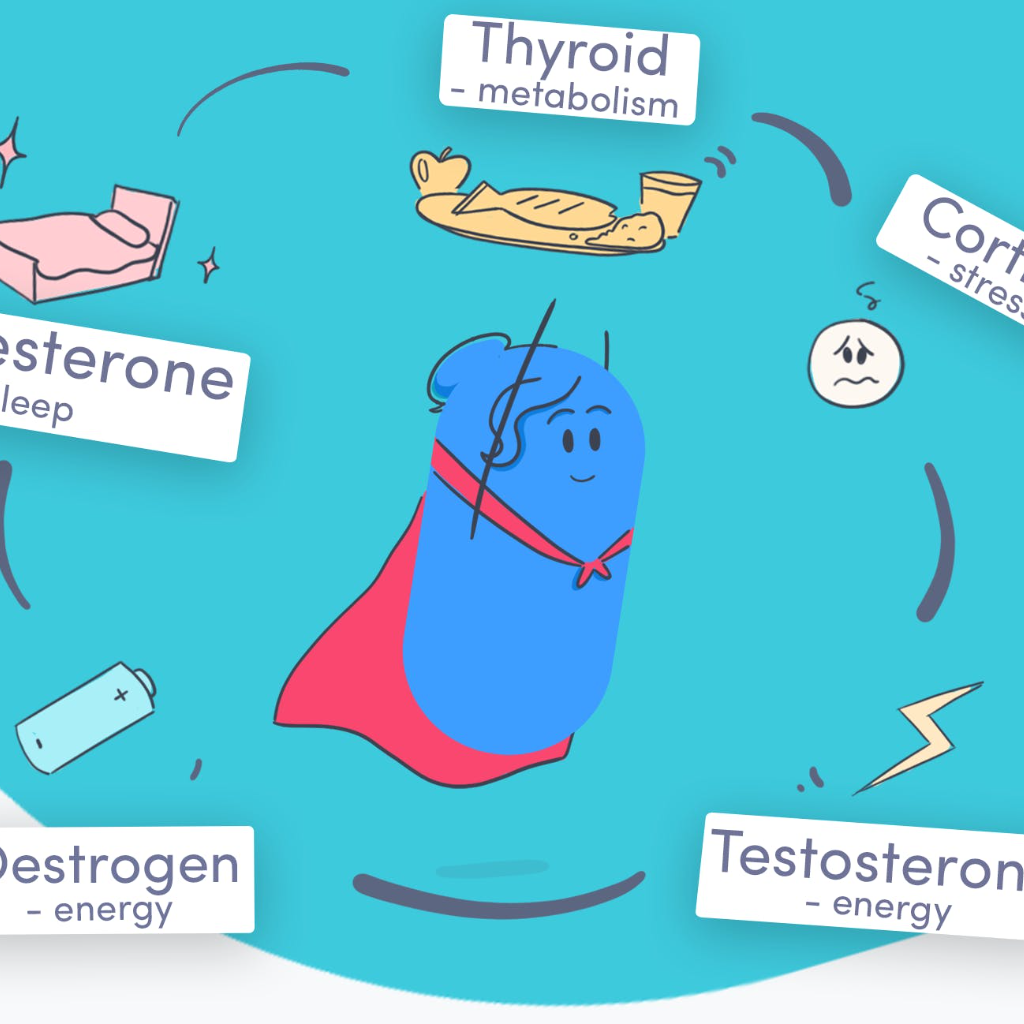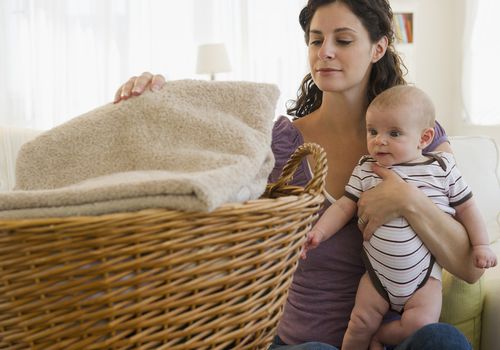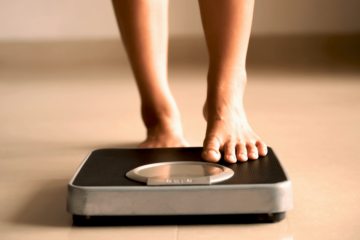Most women find in peri-menopause – the ten years or so leading up to menopause – that weight starts creeping on a little faster, and efforts to get rid of it that worked well at 30 – just don’t work so well anymore. Once menopause arrives – this problem only escalates. This post looks at some of the key elements as to why women gain weight after 50.
The misleading hormonal reason
Many reasons abound for why women tend to gain weight faster after 50. The most common reason is that it is hormonal. Along with this idea is that there is nothing that can be done about it – your body processes are in control and you can only go along for the ride and try and feel good about your increasing girth – because – after all – everyone else is experiencing the same thing.
It is completely true that women’s hormones change drastically leading up to menopause. Oestrogen and progesterone levels drop precipitously, and the adrenal glands take over from the ovaries in producing just enough of these hormones to retain female characteristics – but not enough to enable a pregnancy.
Most oestrogen – which leads to a rounder, softer body – is actually produced after menopause by belly fat which produces its own hormones in increasing quantities, the fatter one becomes.
So yes – hormone changes are assisting with weight gain – but they are not what drove the ship toward the sandbank. The hormones driving the weight gain increased because of certain actions we did ourselves – not because we reached the age of menopause.
What I am trying to point out is that it is not the natural drop in oestrogen and progesterone that causes weight gain at menopause. In reality, the drop in oestrogen should cause weight LOSS.
It is instead the increase in oestrogen caused by a changing lifestyle that often happens leading up to menopause – which causes weight gain. The changing lifestyle leads to putting on weight, and the belly fat produces oestrogen itself, which causes more efficient fat storage. It just happens that reduced activity levels usually do coincide with this time of life, so the wrong thing is being blamed for increasing weight.
The first thing to realise is that your actions put you there, and with some technical, knowledgeable responses, you should be able to reverse the actions and move back into normal weight territory.
Our hormones are largely slaves to our lifestyle. They are not monsters that control everything. We set up a lovely lifestyle in which certain hormones thrive and others are restrained. And it is exactly the same at menopause.
Understanding this is why many women find what is causing the problem of increasing ‘weight gain’ hormones – and go on to successfully reverse the processes.
Our lizard brain
The first thing to understand is that we are wired to store fat – all of us. Our fat storage system of fat cells all over our body are always ready and waiting to fill up – so that we will be ready for an upcoming famine.
We know that a lean person – a very lean person – can actually survive with no food at all for at least 40 days. A lean person has that much fat to burn. An overweight person can survive a good deal longer than that. Fat storage is a survival mechanism, and our brain is geared towards survival.
So to override that tendency, we need to use our higher functioning brain to control those basic tendencies to put in as much food as possible for the potential famine.
‘Know thy enemy’ is the first step of this.
How the survival mechanism works
Human beings have a survival mechanism built into our brains that pushes us instinctively towards getting the largest amount of reward or pleasure from the least amount of work. Psychologists have identified this pattern playing out in a myriad of ways.
Here’s how it works with our weight. It means that humans quickly learn from infancy how to get the largest number of calories (rewards/pleasure) from the least amount of work (movement).
When we are children, we naturally run around a lot – maybe not so much the current generation of children, and that’s why they are getting fatter, but traditionally, children have been active creatures who naturally gravitate towards bread and cheese and pasta and sweets – foods that provide a lot of calories. Children will usually select these foods over salads and cooked vegetables, even children who like healthy foods. Calories are king in our basic brains.
On the flip side, working to get those calories is unfavourable to our basic brains. If it comes already cut up, in a packet, pre-prepared, cooked by someone else – unless we have educated our higher brain that this is not always good, we lean towards this type of food.
And this is why trying to manage weight in a fast-food, processed food-rich society is a minefield requiring continual lifelong vigilance to negotiate safely.
“More Rewards for Less Work” for adults
In our childbearing years, we are actively looking after those children and don’t have as much time to indulge in high pleasure foods – at least not as much time as we will when those children leave home and we move towards retirement. The relentless work of raising multiple children means that, for many women, work is unavoidable. Therefore the calorie rewards of young mums are somewhat controlled by the amount of daily movement.
By the time we women reach menopause, we have learned from decades of experience and habit – how to do the least movement in order to get the most rewards. We can even feel we deserve it after a lifetime of working hard and/or rearing our children. Result: the weight piles on, faster than we expected. This is the overarching reason why so many women gain weight after 50.
When a woman of around 50 or older tells me she just can’t lose the weight despite many attempts, that simply tells me one of three things:
- Either that she is sitting or standing in one spot a lot and knows exactly what high-calorie foods she likes to eat, or
- She has found herself in a situation in which she is unable to see how to increase movement in her life, or
- She simply does not realise how FEW calories she actually needs to sustain her at her current low level of activity.
Very often it is all three things.
At this stage, it is vital to understand the forces in play, how she has got to where she now is, and how much lifestyle change is needed to actually lose weight.
Change the habits of lack of consistent exercise, and/or of eating calorie-dense foods regularly – and the weight will drop off and stay off – just like any other time in life. Yes – I mean that – just like at any other time in life.
Situations that stop over 50’s from moving enough
Daily habits affect weight at any age.
Here are typical reasons menopausal women stop moving as much as they did when they were younger.
- Medical procedures. Knee replacements, back surgery, hip replacements all keep you sitting around for a good while. This can disrupt exercise habits you may have had. Lack of physiotherapy assistance after the procedure (or not doing the exercises given) increases favourable weight gain conditions. If back surgery didn’t work, pain is keeping you inside on the couch.
- Work pressure – by 50 you may have an increasingly responsible position, and work can be even more time-consuming. This can result in you not making enough time to exercise if you are in a sedentary job.
- Supporting a partner with a chronic condition, eg. cancer. Perhaps you stopped work to care for him, and now find yourself stuck at home, with difficulty getting out much.
- A seachange move. You may have thought a move to a less built-up place would mean more exercise; instead, you find yourself driving more, when before you would have walked to the shops.
- Injury. A broken foot or knee injury is keeping you out of the gym or sports team – but not out of the kitchen.
- Mental trauma – a difficult situation with a child or significant other, or at work has led to emotional eating. Anxiety or regret over grown-up children’s problems can easily result in numbing yourself secretly with food or, very commonly, alcohol. It can also quell the motivation to plan ahead and exercise.
- Physical exhaustion caused by years of stress. The adrenal glands have been overactive for years producing cortisol for continuous low levels of stress, and adrenaline for regular acute situations, and now they have to take over all the oestrogen production. For years these organs have been whipped up with coffee or cigarettes or other stimulants, and now they’ve had it! Women in this situation are actually tired all the time, desperately fatigued, and need treatment for these exhausted organs in order to be able to begin a more active lifestyle. These are women who often suffer the most with menopause.
- Settling down. The kids are driving now or out of home; you and your husband can sit and relax now after dinner instead of running back and forth to sports games and music lessons. This often involves alcohol, crackers and cheese.
- COVID lockdowns. These affect people of every age. The problem there is more time to sit and eat, and exercise opportunities may have disappeared. New opportunities for exercise need more careful thought and effort to achieve. This has the greatest impact on those already overweight due to hormones stored in visceral (belly) fat cells.
To she who has – more shall be given!
Never has this saying of Jesus been more true than with the menopausal woman who is fast gaining weight.
I want to explain the nature of the fat that grows around the stomach because it is the main thing driving this rapid weight gain. The main reason that women gain weight after 50.
Abdominal or visceral fat is the fat that grows around body organs and makes your waist area bigger. This fat produces its own hormones – it develops characteristics of an independent body organ that you carry around your middle. Notably, it produces a considerable amount of oestrogen. This enters the bloodstream and is circulated to the other cells of the body. Here is the predominant reason why obesity and weight is a major driving cause of several types of cancer as well as heart disease, high blood pressure, infertility and Type 2 diabetes.
Having a ‘fatty liver’ is a precursor to diabetes. Unless caused by excessive alcohol, is usually caused by excessive weight. Read more <here> about how fatty liver disease occurs.

As I said before, oestrogen is the main hormone that gives women soft, rounded female characteristics. And the more oestrogen, the rounder and softer you will be. So the more belly fat you acquire, the farther from the lean and slimmer shoreline you are moving. And the more obstacles there are to ever returning there.
Normal fat measures for women
81 – 88cm waist = increasing health risks
above 88cm waist = high risk
There are no official guides for body fat. But the best known figures for adult females are 21 – 34% body fat.
The most accurate way to measure body fat is with a DEXA scan. Second-best is with good stand-on home scales that also assess for fat percentage. Or use a guide to assess with hand-held calipers (pinch test).
Read more about normal weight measures for normal people <here>.
I find the basic waist measurement is the easiest. No one needs details to the millimeter or decimal percentage to know if their clothes are looser or tighter. The tape measure is simple and fairly accurate.
Now you know the reasons
If you are nearing menopause or already there, and have gained weight, maybe you have now identified a reason this has happened.
This is the important first step to turning things around.
Excess weight never magically appears out of nowhere.
There is always a story to how it came on.
And that story is usually related to a change in life.
Something new happened to you or someone close to you. And now you are either eating or drinking more, exercising less, sleeping less or stressing more. And this has naturally resulted in weight gain.
There are totally clear reasons why menopausal women tend to gain weight. And they can lose it too. Taking ownership of the reasons behind the weight gain is the first step.
- Your ill partner whom you are caring for may not be getting well soon,
- COVID lockdowns in your state may be persisting,
- your adult child may still be causing you sadness and stress,
- your knee injury may still be keeping you from walking easily,
- work pressure may not be getting less in the foreseeable future,
- you may be at a loss as to how to alleviate your ongoing and increasing fatigue
- your husband may still value beer and cheese and crackers every night after dinner – with you keeping him company
Once you identify the issue stopping you from exercising regularly, you can find ways to navigate the situation you are in. (That’s one thing I do in my work with clients). Once you stop using your situation as your excuse, there is hope for your weight loss.
How to lose it
For (free) tips to lose weight – at any age – follow me on Instagram: click on link on front page of this website <bottom right corner>: ‘Weight Loss Wednesday’ gives a tip every Wednesday.
Or else, come and see me as a private client for an individualised plan and accountability. Together we will work on the factors that have led to your weight gain and strategize to minimise them or work around them.
Both face-to-face and Zoom appointments are available. <Book here.>






0 Comments